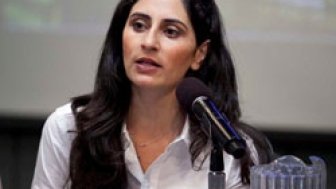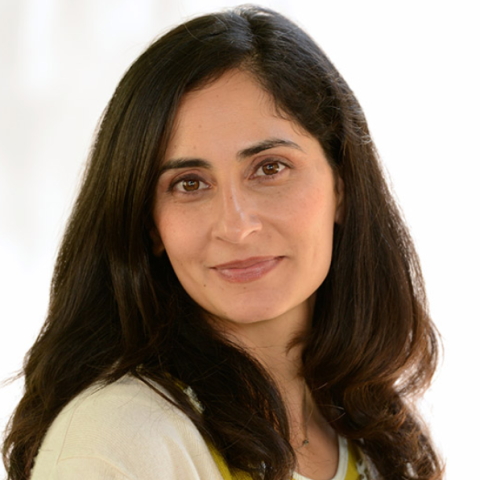Pardis Mahdavi
Former Fellow
Professional Affiliation
Professor at Arizona State University's School of Social Transformation; Dean of the Social Sciences Division.
Expert Bio
Pardis Mahdavi is the dean of the social sciences division in The College of Liberal Arts and Sciences at Arizona State University, and a professor in ASU’s School of Social Transformation. Mahdavi's approach to higher education has been informed by her personal journey as an Iranian-American woman growing up in the U.S., as well as her training as an anthropologist where she learned to be reflexive about complex power dynamics. She has focused her academic career on diversity, inclusion, human trafficking, migration, sexuality, human rights, feminism and public health.
Prior to joining ASU, she was the acting dean of the Josef Korbel School of International Studies at the University of Denver. Before coming to Denver, she was at Pomona College from 2006 to 2017, where she most recently served as professor and chair of anthropology, director of the Pacific Basin Institute at Pomona College, as well as dean of women.
She has published five single authored books and one edited volume in addition to numerous journal and news articles. She has been a fellow at the Social Sciences Research Council, the American Council on Learned Societies, Google Ideas and the Woodrow Wilson International Center for Scholars. She has consulted for a wide array of organizations including the U.S. government, Google Inc. and the United Nations.
Education
B.A. in Diplomacy and World Affairs – Occidental College; M.A. in Anthropology – Columbia University; MIA (Masters in International Affairs) – Columbia University; Ph.D. in Sociomedical Sciences and Anthropology – Columbia University.
Wilson Center Project
"Traffic Jam: Gender, Sexuality, Migration, and Trafficking in Dubai"
Project Summary
This project investigates interactions between issues of labor, gender, migration, and statehood through the lens of Dubai's unskilled foreign migrant workers. Using ethnographic research methods (including participant observation and in-depth interviews), preliminary findings have thus stressed: 1. Dubai's rapid emergence onto the international scene has made it an attractive venue for migrant labor and the trafficking of women; 2. Dubai is characterized by a unique lack of civil society. Minimal social service providers, if any, are not controlled and operated by the state, raising accessibility and privacy concerns, particularly for migrant workers whose rights have been violated. The project explores the conflation of discourses on trafficking, migration and sex work through womens' own narratives.
Major Publications
- Hyphen (Object Lessons) (Bloomsbury Publishing Inc, 2021)
- Crossing the Gulf: Love and Family in Migrant Lives (Stanford University Press, 2016)
- Migrant Encounters: Intimate Labor, the State, and Mobility Across Asia (University of Pennsylvania Press, 2015)
- Passionate Uprisings: Iran's Sexual Revolution (Stanford University Press, October 2008)
- From Trafficking to Terror (Routledge, 2014)
- Gridlock: Labor, Migration, and Human Trafficking in Dubai (Stanford University Press, 2011)
- "'But What If Someone Sees Me?' Women, Risk and the Aftershocks of Iran's Sexual Revolution" in Journal of Middle East Women's Studies Spring 2009
- "Who Will Catch Me If I Fall? Health and the Infrastructure of Risk in Urban Tehran", in Contemporary Iran edited by Ali Gheissari, (Oxford University Press, April, 2009)
Insight & Analysis by Pardis Mahdavi
- Past event
- Women & Gender
Gridlock: Labor, Migration, and Human Trafficking in Dubai

- Past event
- Human Rights
Human Rights and the Arts in Iran Today


